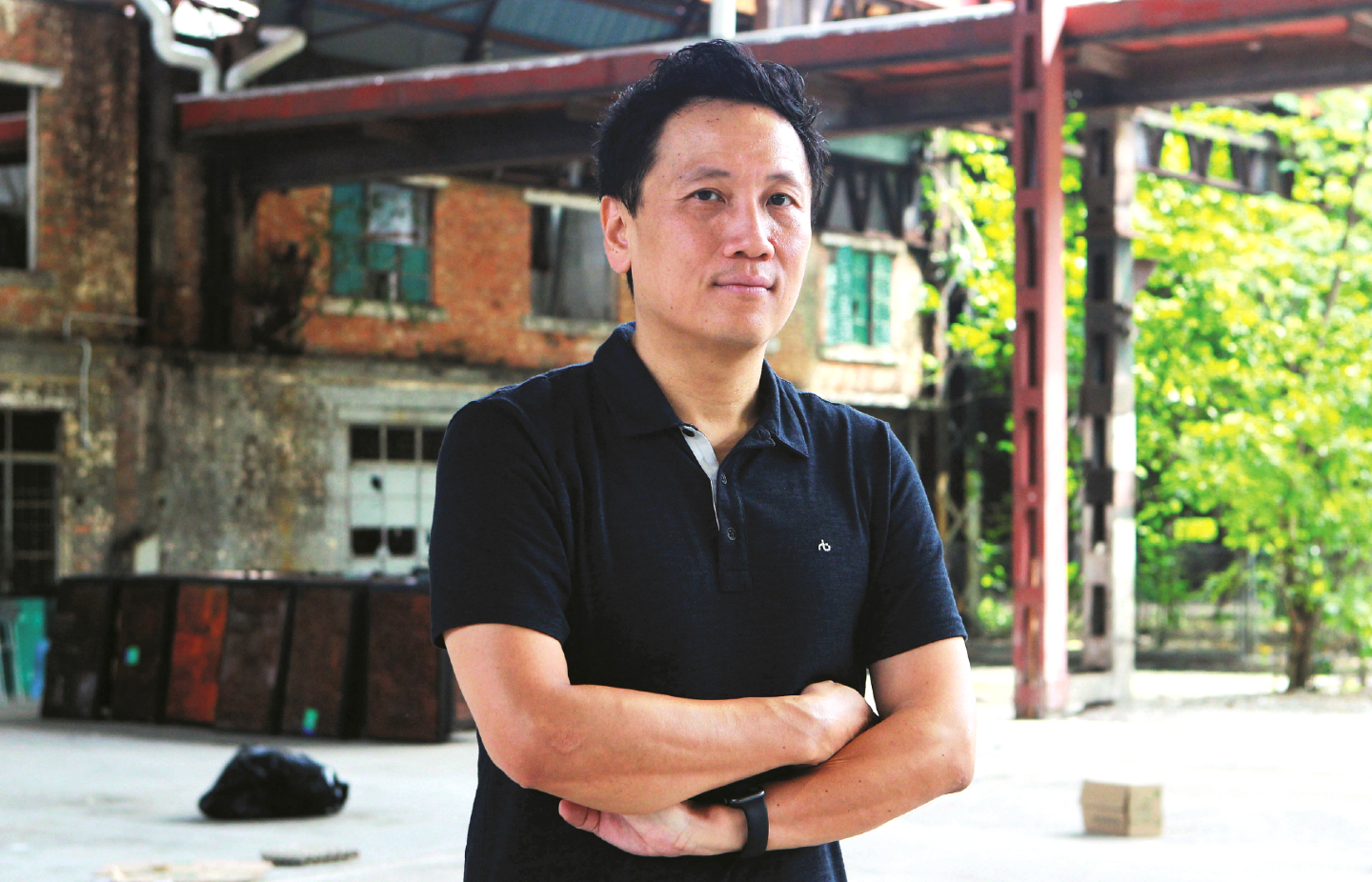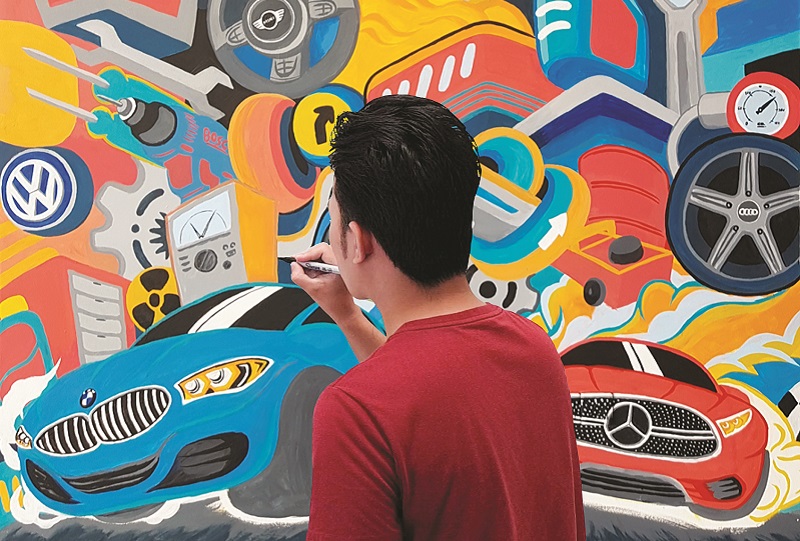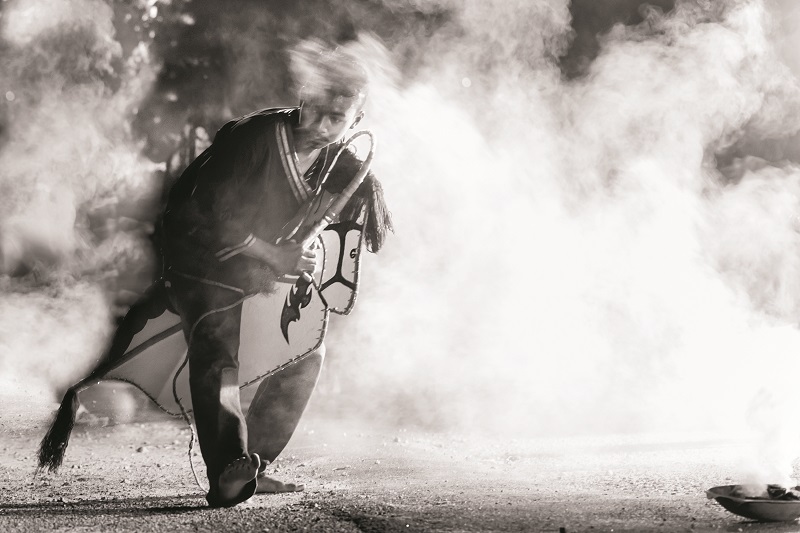
Founder of Urbanscapes, Adrian Yap (Photo: Patrick Goh/The Edge)
Venues like Boom Boom Room and Rex Cinema are throwbacks to many of our pasts, evoking countless memories of raucous parties and old-fashioned cinematic experiences. As our collective memories are piqued by erstwhile adventures, we cannot help but smile when we hear these names being uttered in the present. Creative arts festival Urbanscapes, held this year from Nov 16 to 24, is drawing Malaysians back to these magical spaces of old, celebrating their completely new identities as unique event spaces — Boom Boom Room is now called The Godown KL while the former cinema turned backpackers’ hostel that was reduced to disuse now goes by the über-cool moniker REXKL.
Other unexpected venues that will host Urbanscapes’ multidisciplinary events this year include Medan Pasar, Kwai Chai Hong and the backlanes of Jalan Panggung and Jalan Bandar as well as Sentul Depot, a 110-year-old abandoned train shed. Urbanscapes is pitched as a festival that tells KL’s stories, and with its chosen venues alone, appears to have achieved this noble objective. “We have so many unique spaces that have so much unique history for everyone to learn about, and I think that adds a whole other layer to the festival,” proudly says Adrian Yap, the festival’s founder.
Urbanscapes was first held in Jalan Bukit Bintang in 2002, and the idea was to physically manifest the kinds of eclectic stories that were already being told in KLue — a pioneering city guide of KL, which Yap also founded. “We started Urbanscapes with the idea that whatever was on the printed page or computer screen could be brought to life so that people can experience the stuff that we wrote about in person. And even if we did have personalities and projects from outside KL, at the heart of it, Urbanscapes has always been a KL festival. It’s a once-a-year opportunity to tell the stories of the many things that make up this city.”
nassuha.jpg

After its debut, Urbanscapes organisers Freeform tried out many other locations for size — the then undeveloped area of KL Sentral, the open fields of Astaka in Petaling Jaya, an ill-advised sojourn to Genting Highlands and a three-year stint within the grounds of klpac, which is where it acquired its festival-like identity. This year, it feels like Freeform has really nailed down the venue aspect of Urbanscapes — these historic parts of KL, the bedrock of the city’s founding, give the event a great deal of depth and meaning.
“Over the last few years, we’ve been increasingly convinced that Urbanscapes’ home is really in the heart of the city — which gives us a chance to showcase all these new spaces too,” Yap muses. “I’d like to think that the people behind Urbanscapes — and we have a sizeable team — do this as a love letter to KL. Most of us are born and bred in KL, or if not, we are earning our keep here. Historically, this city has always been where people come to seek their fortunes.”
The theme for this year’s Urbanscapes is Reconnect KL, which ties back to its clever usage of so many unique locations in the city. A key event is URBN.SENI: The Inaugural Triennial Malaysia-Singapore Cultural Showcase, an exciting cross-cultural project between the governments of Malaysia and Singapore that celebrates the close relationship of both nations. A festival within a festival, the initiative will showcase visual art, theatre, music, film, creative markets and culinary events. Organised by the Singapore’s Ministry of Culture, Community and Youth and supported by the Singapore Tourism Board and Malaysia’s Ministry of Tourism, Arts and Culture, URBN.SENI hopes to develop the exchange of cultural and creative ideas between the creative communities and people of Malaysia and Singapore.
kuda-azmanparitraja-ch.jpg

Reaffirming its role as test grounds for unconventional ideas, Urbanscapes will also host HuRu-HaRa, an initiative by local theatre company TerryandTheCuz that combines various art forms — music, dance, installation, visual projection and sound — into a tour de force, causing chaos yet bringing forth beauty at the same time. Occupying Medan Pasar, HuRu-HaRa allows the artists and creative minds alike from all walks of life to explore their voices, their land and their people.
Yap has secured the participation of a number of corporate partners this year that serves to extend the reach of the festival. For example, luxury German marque BMW’s short film platform the Shorties is part of Urbanscapes for the first time, festival presenter U Mobile’s Unlimited Grooves Festival is putting on stage a number of unique local and international music acts and Nippon Paint is supporting a number of public art installations.
A natural introvert, the latter is something Yap is most looking forward to at this year’s Urbanscapes. “Not everyone can make the scheduled performances, and some might not even want to attend the theatre or dance pieces as they might just think its above their heads. Public art is so accessible, and I’m so eager to see how people react to this. For us, it’s about continually trying to broaden the base of the festival and public art is probably the best way to do that.”
Although the magazine that first inspired the festival was discontinued in 2010 as it simply wasn’t nimble enough to meet the needs of a changing media industry, Urbanscapes had garnered a large enough following for it to be a feasible project on its own. “It’s quite funny — even though the business model for a publication was challenging, an annual event was still feasible. Experiential marketing was a big thing then, like it is now, and we had partners eager to sign up and people eager to come, so there was plenty of reason for us to continue with Urbanscapes,” says Yap.
As a creative agency, Freeform’s stock-in-trade was its ability to tell stories and Yap harnessed this ability with another KL-centric event that has also been very successful — Tiffin, a platform for multilayered dining experiences that is spurred by Malaysians’ unparalleled love affair with food. “For both events, we have always been about the platform business ... let’s say, creating an avenue for this to happen and providing the support for people to tell their stories,” Yap observes. “What we did for artists for Urbanscapes, we are now doing for young chefs and restaurateurs with Tiffin.”
When asked about Urbanscapes’ next steps and how they will top this year’s edition, Yap smiles. “I’d like to think that we’ve been able to add a bit more creativity to the city. Over the course of nine days in a year, we get people out of their usual routine and experience this city through the eyes of different people, and enjoy the city in a different way. And, of course, I hope that feeling stays with everyone and brings them back to KL.”
This article first appeared on Nov 18, 2019 in The Edge Malaysia.


